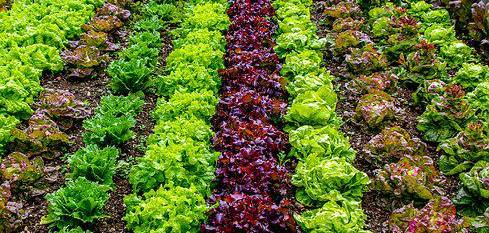
A new assessment released by Birdlife Europe and the European Environmental Bureau finds that EU member states are failing to use CAP funds to address environmental degradation from intensive agriculture practices. This comes in time when member states are putting a final touch on their CAP strategic plans before their submission for the approval by the European Commission.
In two new briefings on soil health and grasslands conservation, national agricultural experts at Birdlife and the EEB analysed how eight and eleven respective EU member states planned to use CAP funds to protect and manage grasslands and to ensure and safeguard soil health on EU farms.
The briefings find that member states’ CAP strategic plans are insufficient. CAP plans for 2023-2027 fail to adequately protect and sustainably manage valuable grasslands and show too little ambition to safeguard EU soils. The findings are at odds with the EU Green Deal’s ambitions for its Farm to Fork and Biodiversity Strategies.
This complements the findings of two linked Birdlife and EEB briefings that demonstrate the draft CAP strategic plans are unlikely to reach the 10% biodiversity target set by the EU Biodiversity Strategy. The plans fail to sufficiently protect wetlands and peatlands and, thereby, to safeguard the preservation of carbon-rich soils.
Clearly, there is room for improvement. The European Commission has sent out its Observation Letters to member states, pointing out gaps and calling for higher environmental and climate ambitions.
“Vested interests are arguing that with the conflict in Ukraine taking place, the EU should take a step back from its ambitions for the environment and climate, otherwise it may face global food shortages. But that argument couldn’t be further away from the truth. Science clearly states that healthy ecosystems are our best allies to safeguard our food systems. Sadly, our assessments show that new CAP strategic plans will fail to protect natural resources and support the continuation of damaging policies. Farm Ministers should stop gambling with our future and seriously invest in protecting our planet and the ecosystems our food production relies on,” says Marilda Dhaskali, EU Agriculture Policy Officer, BirdLife Europe
“Last week, the European Parliament celebrated the 60th anniversary of CAP – one of the oldest, most generously funded and yet most controversial EU policies. The content and ambition of the new generation of CAP strategic plans will be a litmus test of whether this policy will still have any legitimacy in the future,” says Célia Nyssens, Senior Policy Officer for Agriculture and Food Systems, EEB
Environmental ambitions set by the European Green Deal are integral to addressing biodiversity loss and climate change. However, these targets can not be met if current draft CAP plans that hurt the environment are approved. The series of thematic briefings published by Birdlife Europe and the EEB confirm that the European Commission must push for stronger CAP strategic plans that align with the Green Deal targets.
Additionnal information :
Key findings from the thematic briefings:
- Grasslands in the new CAP: bad news for biodiversity and climate (June 2022):
New CAP conditionality leaves large areas of grasslands unprotected, including the most valuable ones. Even if protected, most grasslands are poorly managed. Management schemes that have potential to support sustainable management and protect biodiversity are underfunded, while most funds still support intensification. Measures that would encourage reduction of livestock are missing.
- Soil and carbon farming in the new CAP: alarming lack of action and ambition (June 2022):
Draft CAP Strategic Plans fail to sufficiently protect EU soils and thereby fail to prevent further soil degradation and loss of soil organic matter. The conditionality requirements relevant to soils (GAEC 5, 6 and 7) are implemented too weakly by Member States to reduce soil threats and slow down soil degradation.
The analysis shows that the draft CAP strategic plans are unlikely to adequately contribute to reaching the 10% biodiversity target. The reasons include: low mandatory baseline, use of exemptions and weighting factors that inflate the real area. The ambition to support non-productive elements by voluntary schemes measured by indicator R.34 is blatantly inadequate and/or in many cases the area is overestimated.
Draft CAP Strategic Plans currently fail to sufficiently protect wetlands and peatlands and thereby to safeguard the preservation of carbon rich soils. Unfortunately, GAEC 2 is implemented weakly by Member States and in some cases even delayed, thereby contributing to the destructive status quo of peatland drainage and intensive use for agriculture.
Written by :
 Ruby Silk - Communications Officer - European Environmental Bureau
Ruby Silk - Communications Officer - European Environmental Bureau
Posted on 2022-06-15 16:42








Comments